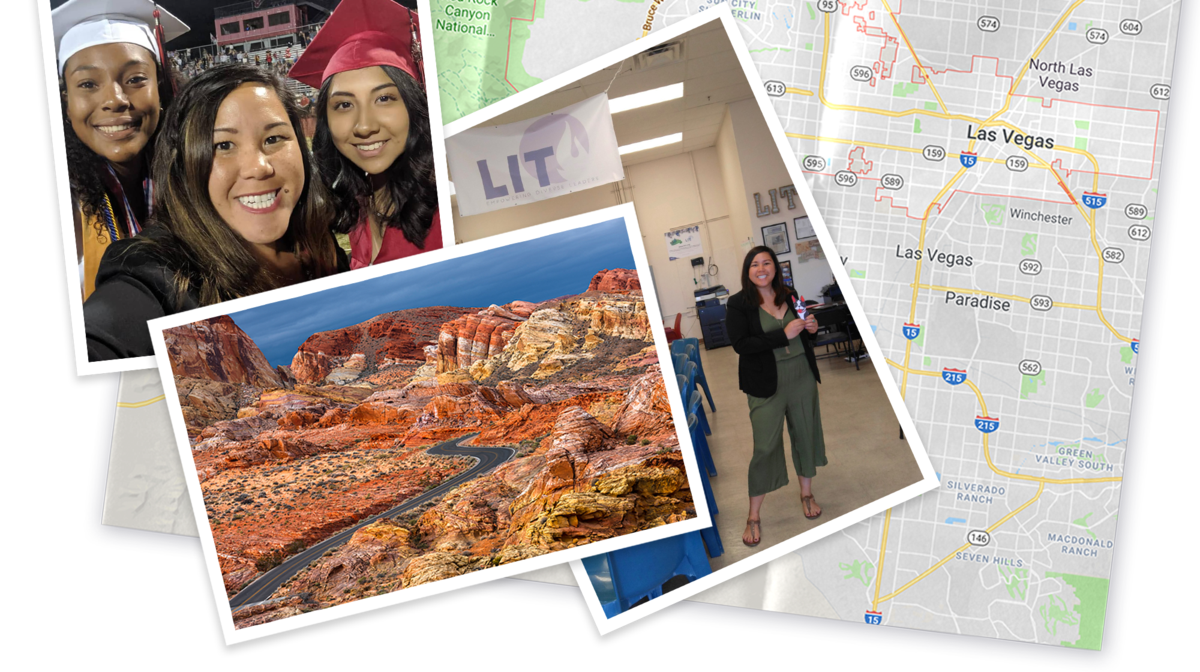
Photos courtesy of Leaders in Training and from iStock
Improving the odds
“What if we can reverse engineer ways to create and empower diverse leaders from our community to become the elected officials, the doctors, the teachers, and the lawyers of our community?”
Being the first in your family to go to college is hard. Erica Mosca, Ed.M. ’11, knows.
Growing up in California, Mosca was far from wealthy. She participated in a college prep program and won a scholarship to Boston University (BU), where she excelled. The trials she faced, however, left her with the desire to ease the way for other first-generation college students.
After graduating from BU in 2008, Mosca spent two years with Teach for America in elementary school classrooms in northeast Las Vegas, a region with one of the worst graduation rates in the nation. She started thinking and talking about ways to lift those numbers and train students for college — and to be leaders in an America growing more diverse each year.
“I realized very quickly that I could talk about college [with students] all day long, but I wasn’t able to make systemic change,” said Mosca. After Teach for America, she earned a master’s degree at Harvard’s Graduate School of Education, and then returned to Nevada to work in education policy. There, she found that, although she could design pathways to success, she couldn’t help kids see the value in them.
So Mosca contacted her former Teach for America students, now in eighth grade.
“I was like, ‘Hey, this leaders-in-training idea, we’re going to make it a real thing. Show up at the neighborhood park on this day.’ And there were 30 kids and families there.”
Thus was born her nonprofit, Leaders in Training (LIT), initially funded with her own savings in 2012. The program, based in northeast Las Vegas, has both an academic and social component.
High school freshmen begin by learning life skills such as the importance of keeping appointments and how to formally greet others in a professional setting. Students also participate in the first of three planned internships by tutoring elementary school kids in nearby schools. By the time they begin their sophomore years, they’re asked to start focusing on their potential college majors.
“[One of our students] said he wanted to be an engineer, so we got Nevada Energy — the biggest source of energy in the state — to take an intern,” said Mosca. About the whole group, she added, “Now they have a career internship, and they’re learning how to be on time, be resilient, connect with others, network.”
Junior year focuses on ACT preparation and starting the Common Application. “We do college visits throughout the four years,” said Mosca. “Senior year all we do is apply to colleges.”
But the program doesn’t end with graduation. The students form a support network for each other through college.
“Every cohort of students is on a group text [and] on a call every month,” explained Mosca. These regular check-ins with peers let the students take responsibility for their own education while having a safe place to ask questions and seek advice.
After seven years, LIT’s first class is graduating from college.
“We have one student who was in our first cohort. She’s graduating from the University of Nevada, Reno, a semester early and is joining an advocacy group called the Asian Community Development Council of Southern Nevada. She’s opening the Reno office as a 20-year-old, and has already hosted multiple citizenship fairs,” Mosca said. “Because she’s a leader.”
This story is part of the To Serve Better series, exploring connections between Harvard and neighborhoods across the United States.




